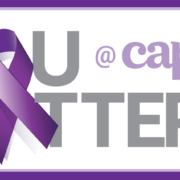CAPSA Caseworkers: Partners in Safety, Healing, and Empowerment
At CAPSA, we often say that caseworkers are the heart of our organization. That’s because every survivor’s story is unique, and so are the supports they may need as they rebuild safety, stability, and independence. Some survivors may want help navigating the legal system. Others may need assistance with housing, employment, transportation, or accessing mental health resources. And many simply need a steady, compassionate advocate in their corner.
Rather than “saving” survivors, CAPSA caseworkers walk alongside them. Survivors deserve full credit for their strength, resilience, and the choices they make. Caseworkers provide support, information, and connection, but the survivor remains in control of their journey.
What caseworkers offer is partnership. It is grounded in dignity, respect, and the belief that every person deserves to feel safe and supported.
What Does a CAPSA Caseworker Do?
When someone reaches out to CAPSA, a caseworker is often one of the first people they speak with. But what exactly does a caseworker do?
At CAPSA, caseworkers are trained advocates who support individuals and families experiencing domestic violence, sexual assault, or other forms of abuse. They listen without judgment, help create personalized safety plans, and connect clients with resources that can make daily life safer and more stable.
A CAPSA caseworker might:
-
Arrange for emergency shelter when someone needs somewhere immediate and safe to go
-
Attend court hearings to provide support during protective order processes
-
Connect survivors with trauma-informed therapists for their mental health needs
-
Help coordinate access to housing programs, financial resources, or employment services
-
Offer emotional support and consistent follow-up, helping survivors rebuild confidence and a sense of control
While every survivor’s situation looks different, every caseworker’s goal remains the same: to help survivors identify options, understand their rights, and move forward in ways that feel right to them.
A Model Built on Availability and Accessibility
In the past, caseworkers at CAPSA were often described by specific specialties. While internal funding sources still shape some of our programs, we no longer assign clients to caseworkers based on specialty. Instead, survivors are connected to the first available caseworker within the appropriate program, whether that’s housing, shelter, or social services.
This approach removes unnecessary barriers and ensures survivors receive help quickly. Most importantly, it reinforces that no matter what someone is facing, any CAPSA caseworker is fully trained and prepared to offer support.
This also reflects how caseworkers approach their work: with adaptability, shared knowledge, and teamwork. Caseworkers collaborate constantly, learning from one another and ensuring clients get comprehensive, coordinated care.
Going Above and Beyond — Without Overstepping Survivor Agency
CAPSA caseworkers consistently go beyond what most people imagine an advocate does. If an abuser is monitoring a survivor’s movements, caseworkers may meet at a workplace or other neutral location. They make dozens of calls to help secure resources such as housing, legal support, childcare, transportation, or medical care.
They also complete extensive training in trauma-informed practices, not just in theory, but in how to apply those principles in real moments of crisis and healing.
But one of the most impactful parts of their work is this: Caseworkers make sure survivors know they have choices.
After long periods of control, manipulation, or isolation, having someone affirm your agency can be transformative. Caseworkers provide information, options, and support, but it is always the survivor who makes the decisions.
Hope, Healing, and Empowerment
For many survivors, reaching out to CAPSA can feel like the hardest step. But once they do, a caseworker is there to walk alongside them. Through crisis, through transition, and through rebuilding.
Caseworkers provide connection.
They provide stability.
They provide a nonjudgmental space to process fear, make plans, and reclaim control.
Every survivor’s success comes from their courage and choices. Caseworkers ensure they don’t have to navigate those choices alone.
How to Get Help
If you or someone you know is experiencing domestic violence or sexual assault, CAPSA offers free and confidential services to anyone in need. Caseworkers are always available for consultations to help you understand your options and access support.
Visit capsa.org to learn more or call our 24/7 Support Line:
Utah: 435-753-2500
Idaho: 208-540-8536
You are not alone. CAPSA is here to walk beside you every step of the way.






